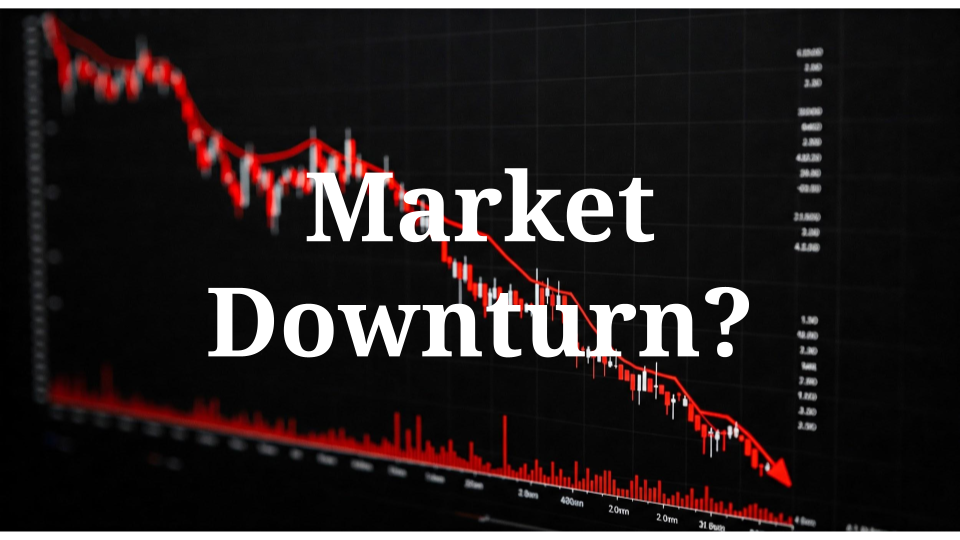Is a Financial Advisor Worth It?
/If you have extra time, are interested in finances, and are willing to research the actions needed to become successful financially; then you might not need a financial advisor. There are a lot of great free resources available if you are willing and able to put in the time and effort. That being said, there are also many reasons why you might choose to work with a financial advisor.
You might:
Be too busy with work/life to complete research on your own
Deal with analysis paralysis and need some guidance on how or where to invest
Get nervous during periods of market volatility and need someone to give you reassurance and prevent you from making an emotional investing decision that could cost you a lot of money
Need someone to help keep you accountable and consistent with investing
Not be interested in finances/investing and would rather pay someone to help so you can spend more time on things that you enjoy
Whether you are currently working with a financial advisor or looking to work with a financial advisor, here is a review of some ways financial advisors could add value to your investing plan according to Vanguard. If you do not need/want a financial advisor you may still want to focus on these areas as you manage your own financial plan. (Source: Vanguard Advisor’s Alpha; link below)
Value a Financial Advisor Could Bring
As I review the seven modules that Vanguard presents, please keep these quotes from the paper in mind.
“Paying a fee to a professional who follows Vanguard’s Advisor’s Alpha Framework described here can add value in comparison to the average investor experience, currently advised or not. We are in no way suggesting that every advisor—charging any fee—can add value. Advisors can add value if they understand how they can best help Investors.”
“We do not believe this potential 3% improvement can be expected annually; rather, it is likely to be very irregular.”
“Some of the best opportunities to add value occur during periods of market duress or euphoria when clients are tempted to abandon their well-thought-out investment plans.”
1. Suitable Asset Allocation Using Broadly Diversified Funds/ETFs Value: >0.00%
Asset allocation is the percentage of investments you have in stocks, bonds, cash, and alternative investments. Factors to help determine your asset allocation are your risk tolerance, risk capacity, and the goals you have for that particular sum of money. Having the right mix of investments for your specific situation and goals is very important. Vanguard found this value add to be significant but stated it was too unique to quantify.
2. Cost-Effective Implementation (expense ratios) Value: 0.30%
After determining your asset allocation, the next step would be to decide what investments to invest in. One thing that you have a lot of control over is how much you pay to be invested in the stock market. The difference between the returns you achieve and the cost you pay is your net return. Vanguard recommends keeping your expense ratios low, and I agree. A high expense ratio for a fund could be greater than 1% whereas a low-cost index fund could be as low as 0.04%. Vanguard found this value add to be 0.30%.
3. Rebalancing Value: 0.14%
Your asset allocation can drift over time. Let’s say you originally invested 80% in stocks and 20% in bonds. One year later if stocks perform better than bonds, you might now be 90% stocks and 10% bonds. If you want to control your risk and stick within your risk tolerance, then rebalancing back to the original 80% stocks and 20% bonds may make sense for you. Rebalancing can also help you buy low and sell high. It forces you to buy the investment that underperformed and sell the investment that overperformed. This is easier said than done. If you had an investment that did really well, emotionally you may not want to sell some of it and buy the investment that underperformed. A financial advisor could do this automatically for you. Vanguard found this value add to be 0.14%.
4. Behavioral Coaching Value: 0.00%-2.00%
As human beings, we all have emotions. During periods of market volatility and downturns, having an advisor to help prevent you from changing your investment strategy could be very valuable. When COVID initially started, the market took a huge dive as the economy shut down. I know a few people who sold completely out of the stock market because of fear. Then when the market recovered they missed out on the huge gains that followed. They let their emotions get the best of them and ended up locking in their losses by selling. If they would have had an advisor to help them stick to a financial plan they might be in a better position today. Vanguard found this value add to be 0.00%-2.00%.
5. Asset Location Value: 0.00%-0.60%
There are three main types of accounts where you can keep invested assets: Tax-deferred accounts, Tax-free accounts, and Taxable accounts. Having the right investments inside of the correct accounts could help you pay less in taxes, which would leave more money left over for you. Here is a figure from the Bogle Heads forum which reviews which funds might be better for the three different account types. A financial advisor could help you decide which investments should be inside which accounts. Vanguard found this value add to be 0.00%-0.60%.
(Source: Bogleheads Wiki; link below)
6. Spending Strategy (withdrawal order) Value: 0.00%-1.20%
If you only have investments inside of one account type then this module wouldn’t bring any value to you. On the other hand, if you have some investments inside of a 401(k), a Roth IRA, a Health Savings Account, and a taxable brokerage account then which account you withdraw money from first could add a lot of value and help you save on taxes.
You might withdraw from your 401(k) for your required minimum distributions for that year first, then you might consider taking money out of your taxable brokerage account, after that you might decide to withdraw money from your Roth IRA, saving your HSA for later. Having money invested in different account types can allow you to adjust how much tax you pay during your retirement years. Withdrawing money in a sub-optimal order could cause you to pay more taxes! Vanguard found this value add to be 0.00%-1.20%.
(Source: Vanguard Advisor’s Alpha; link below)
7. Total Return Versus Income Investing Value: >0%
This includes helping investors decide what kind of bonds to include in their portfolio such as short-term, long-term, and high-yield. Guiding investors to not focus solely on retirement income with bonds but to also consider capital appreciation that could add value over the long term. This could also help decrease risk and increase tax efficiency. Vanguard found this value add to be significant but stated it was too unique to quantify.
So Is Having a Financial Advisor Worth It?
That is a value judgment, so only you can decide if having a financial advisor is worth it. Vanguard has shown that advisors can add up to, or exceed, 3% in net returns by following their Advisor’s Alpha framework. Over a long period that could add tremendous value to your financial plan. That’s if you are being charged reasonable fees for the services provided. This figure shows the median advisory fees based on account size.
If you want to do it on your own, make sure to do your research so that you can invest well
If you currently work with a financial advisor, make sure you what they are charging you and evaluate if they are following Vanguard’s best practices in wealth management
If you want to work with an advisor then feel free to reach out to as I would happily meet with you to explain how I would be able to help you with your financial plan
(Source: Kitces Blog; link below)
Sources: https://advisors.vanguard.com/content/dam/fas/pdfs/IARCQAA.pdf
https://www.bogleheads.org/wiki/Tax-efficient_fund_placement
Fiduciary Financial Advisors, LLC is a registered investment adviser and does not give legal or tax advice. Information presented is for educational purposes only and does not intend to make an offer or solicitation for the sale or purchase of any securities. The information contained herein has been obtained from a third party source which is believed to be reliable but is subject to correction for error. Investments involve risk and are not guaranteed. Past performance is not a guarantee or representation of future results.

















